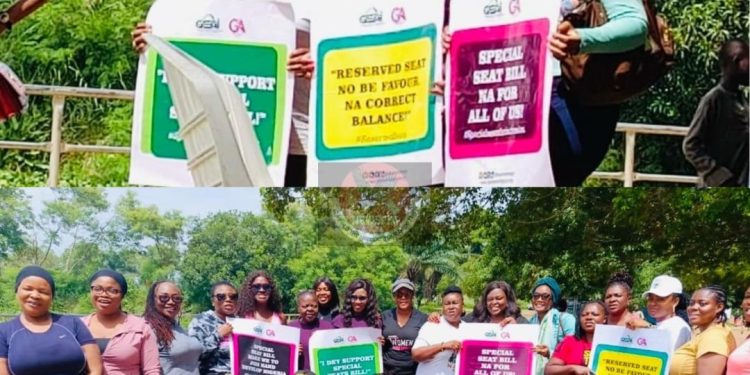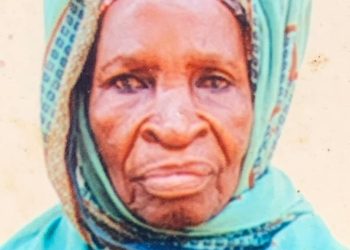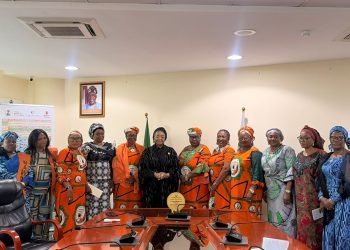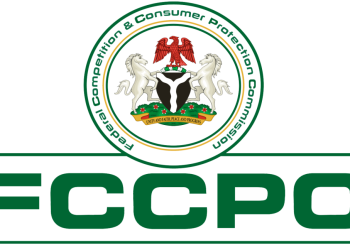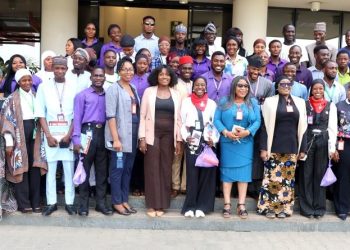By Nkechi Eze
Women journalists from across Nigeria have renewed calls for the urgent passage of the Special Seats Bill to address the glaring underrepresentation of women in political leadership and decision-making across the country.
This passionate advocacy came to the fore during the Fit for Inclusion programme held in Abuja, an event focused on promoting wellness and advocacy among women in media. The initiative was organized by the Women in Media Development Initiative (WIMDI) in partnership with the Nigeria Association of Women Journalists (NAWOJ) and Gender Strategy Advancement International (GSAI). It served not only as a platform to empower women in journalism but also as a rallying point to demand long-overdue legislative action that could reshape Nigeria’s political landscape.
The event attracted seasoned journalists, advocates, and political aspirants who lent their voices to the campaign for inclusive governance through the implementation of gender-responsive policies. At the heart of the discussion was the Special Seats Bill, a legislative proposal spearheaded by the Deputy Speaker of the House of Representatives, Hon. Benjamin Kalu, alongside twelve other lawmakers. The bill seeks to reserve a specific number of legislative seats in the National Assembly and State Houses of Assembly exclusively for women, a strategic move aimed at correcting gender imbalance in Nigeria’s political space.
Chizoba Ogbeche, the National Vice President of NAWOJ (Zone D), emphasized the urgent need to demystify the political exclusion of women. She lamented the continued marginalization of women in politics despite their unique understanding of gender-specific issues.
“Women are being discriminated against politically,” she said. “A woman knows what the problems of women are. Previously, five gender-focused bills, including this special seat bill, were rejected. That was largely due to poor engagement and lack of grassroots sensitization. The campaign must now begin from the bottom up.”
Ogbeche stressed that the bill should not be seen as offering “women seats” in a patronizing manner, but rather as an effort to correct historical imbalances. She also underscored the importance of mobilizing public support, especially among men, to see the value in inclusive representation.
In a similar vein, Bassey Ita-Ikpang, Chairperson of NAWOJ FCT, called on the media to focus on the issues rather than stereotypes about women.
“Let’s stop looking at women through the lens of appearance or gendered stereotypes. We need to look at what women bring to the table,” she said. “It is also vital to enlighten more women that elections are about much more than collecting wrappers. It’s about demanding meaningful representation and legislative backing, like the Special Seats Bill.”
She noted with concern that even polling units were often perceived as owned and controlled by entrenched interests, discouraging many women from active participation. She challenged journalists to drive more ethical and sustained reporting around women’s political inclusion.
For Adaora Sydney Jack, Executive Director of GSAI and a former political candidate, the conversation was deeply personal. Sharing her experience of running for public office, she highlighted the stark difference between political theorizing and actual political engagement.
“I used to criticize politicians from the comfort of my TV studio, but when I ran for office, I saw firsthand the structural obstacles women face,” she explained. “To fix the system, you must be in the room. Even if the room is broken, you must enter to repair it.”
Adaora lamented the dire statistics of women in Nigeria’s legislative bodies only three women currently serve in the Senate, and just 15 out of 360 in the House of Representatives. Even worse, several states have no female lawmakers at all.
“What decisions can three women make in a Senate of 109? How can 15 out of 360 make any tangible difference in the House?” she asked. “This bill isn’t just for elite women. It is for every woman, young, disabled, marginalized, who wants a better Nigeria.”
Echoing the call to action, veteran journalist Lara Owoeye-Wise advocated for a coordinated social media and broadcast campaign to raise awareness. She believes a unified media effort can galvanize public support and pressure lawmakers into action.
“If every woman journalist posts consistently about this on social media and airs it across our platforms, we’ll create the kind of visibility that moves bills,” she said. “We must see this not only as a professional cause but a generational one for our daughters, our sisters, and those who have been discouraged from trying again.”
Osasu Oguche, founder of the TOS Group, added that political decision-making should never be left to a single gender.
“You may not be interested in politics, but politics is interested in you,” she warned. “Even if you’re not contesting, you should lend your voice to support those who have the capacity and will. Our silence contributes to exclusion.”
The Fit for Inclusion event closed with a shared commitment by all participants to amplify advocacy for the Special Seats Bill through media channels, community engagement, and direct dialogue with legislators.
As Nigeria grapples with multifaceted challenges, security, poverty, education, and health, these women leaders believe that inclusive governance, where women’s voices are not only heard but institutionalized, is a crucial step toward national development.
The message is clear: for Nigeria to progress, women must not remain on the sidelines of politics. They must be seated, counted, and empowered to shape the laws that govern all.


